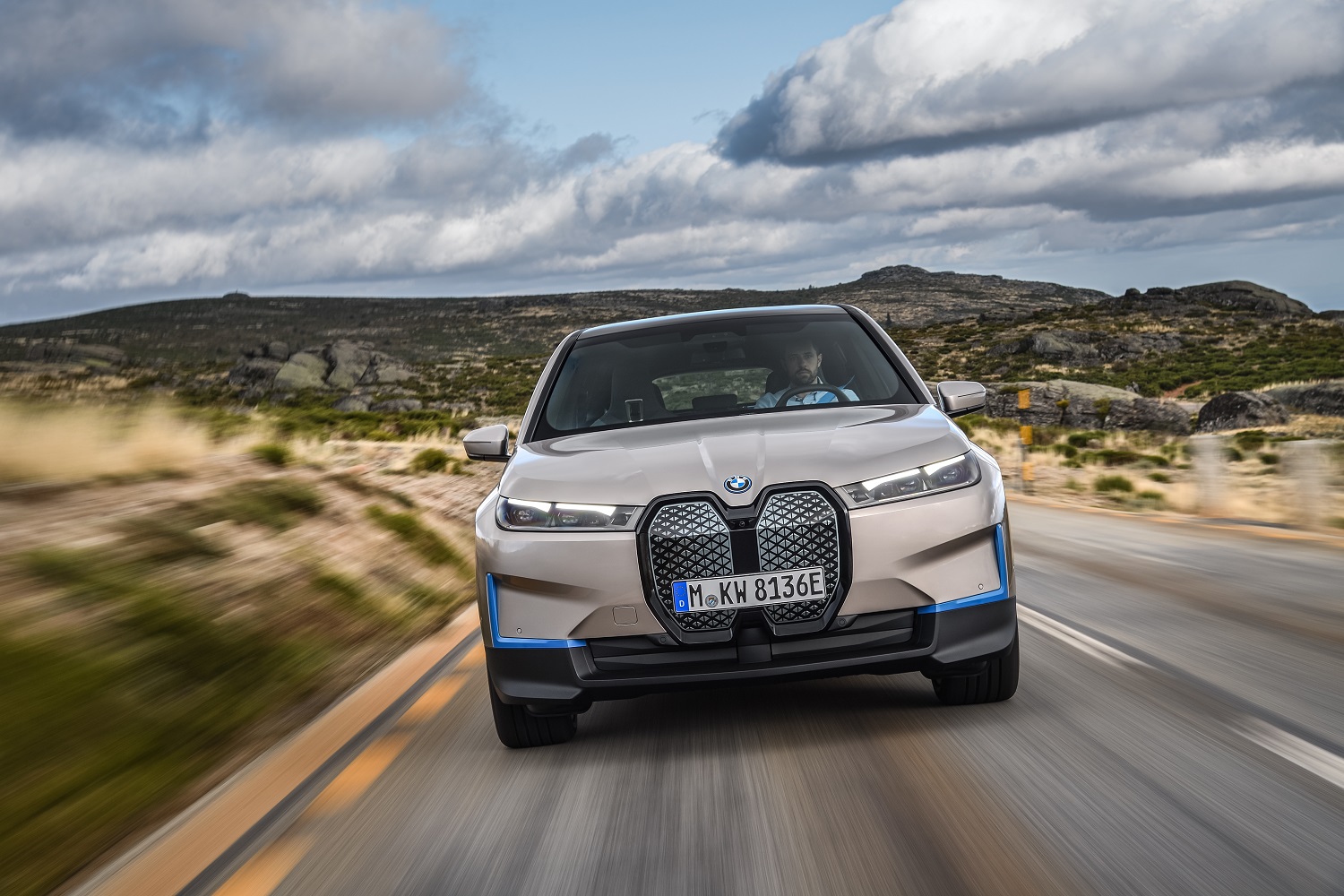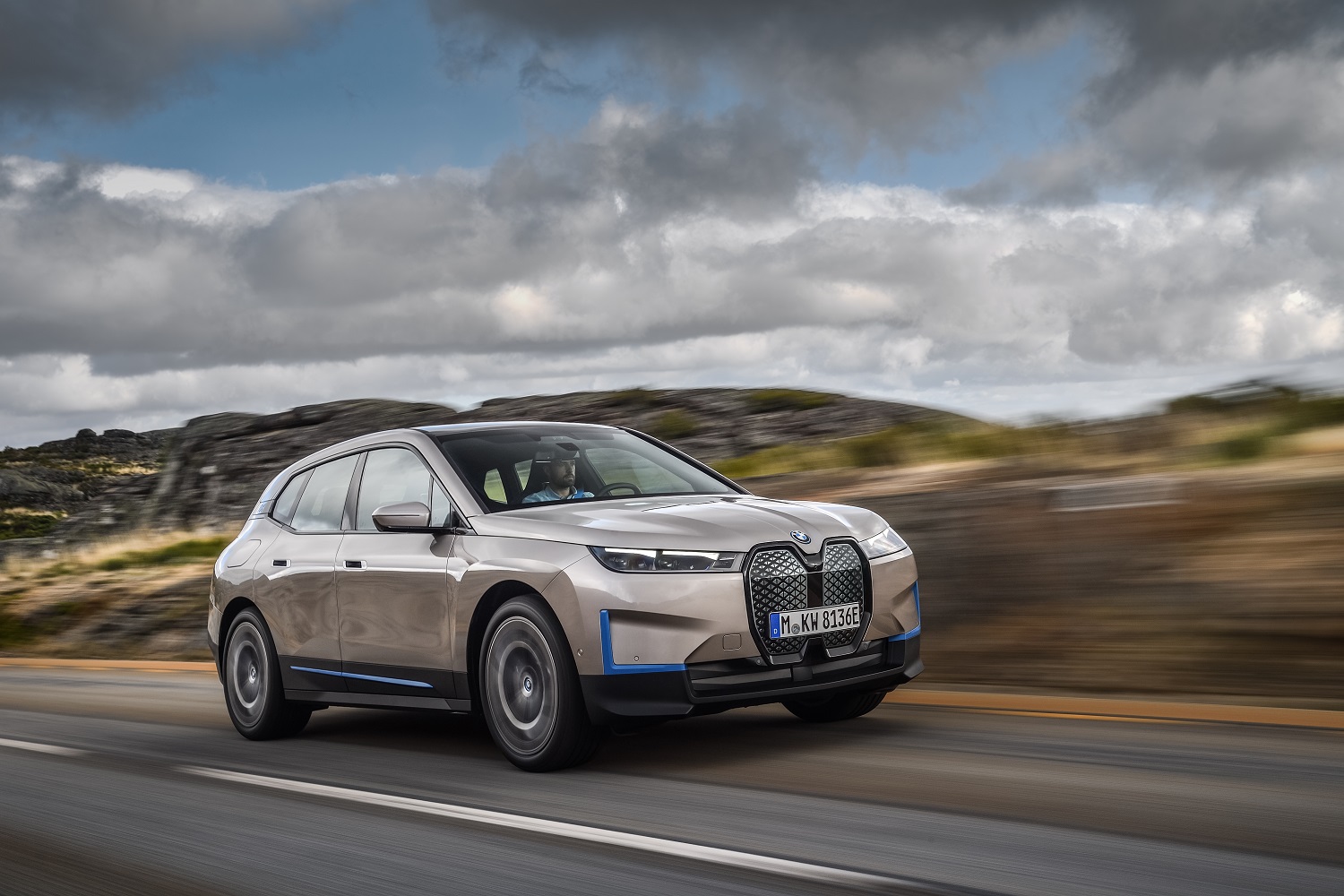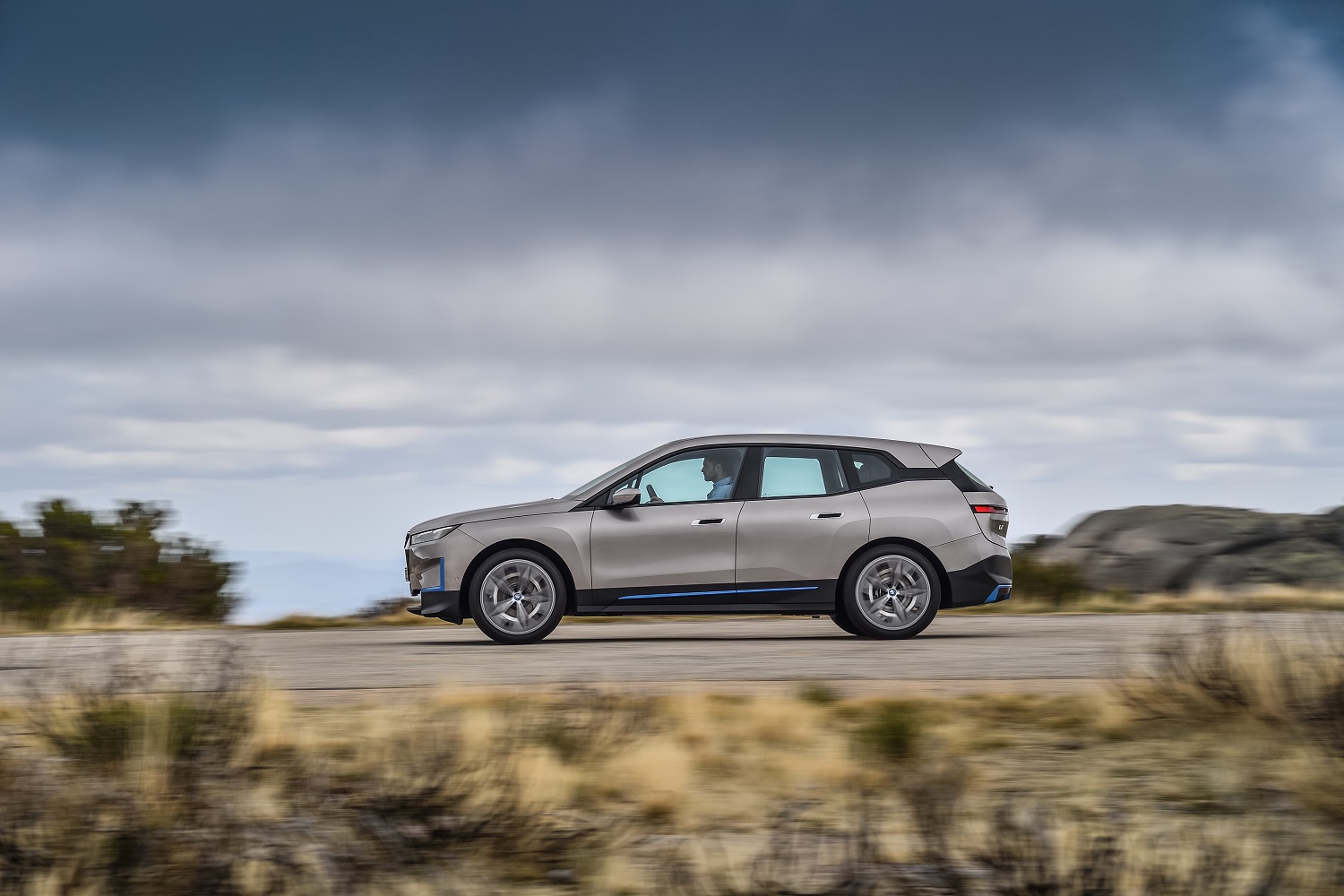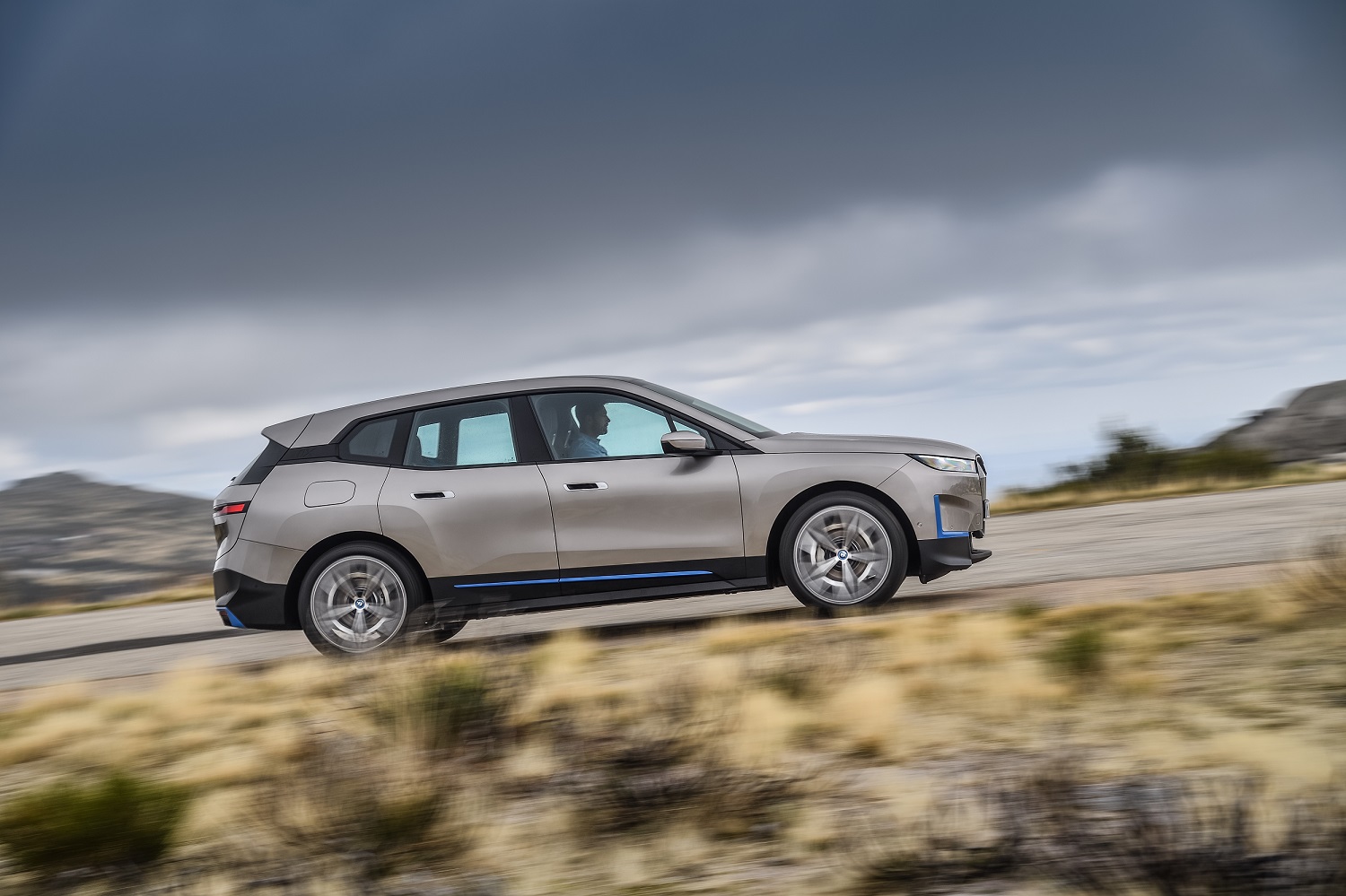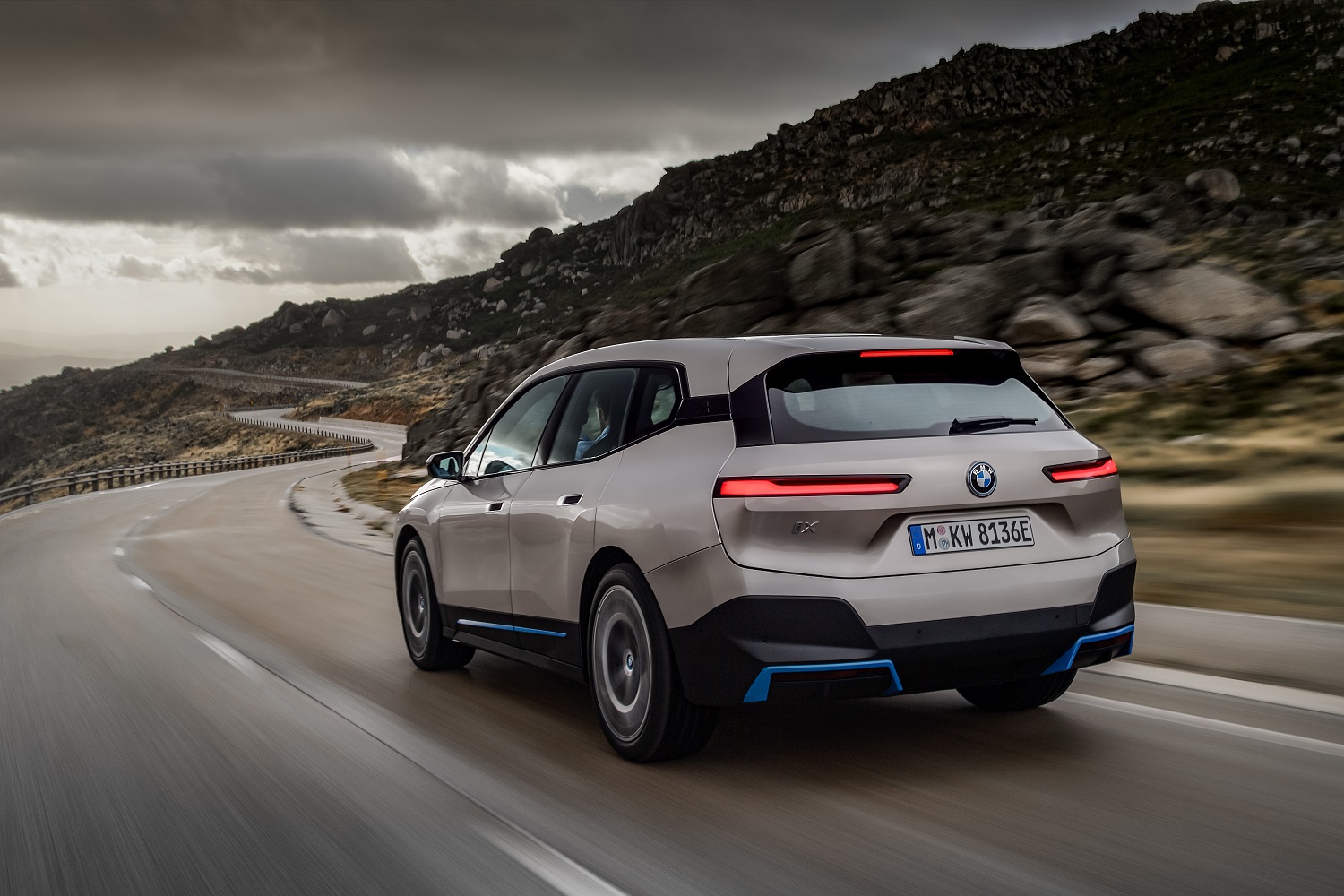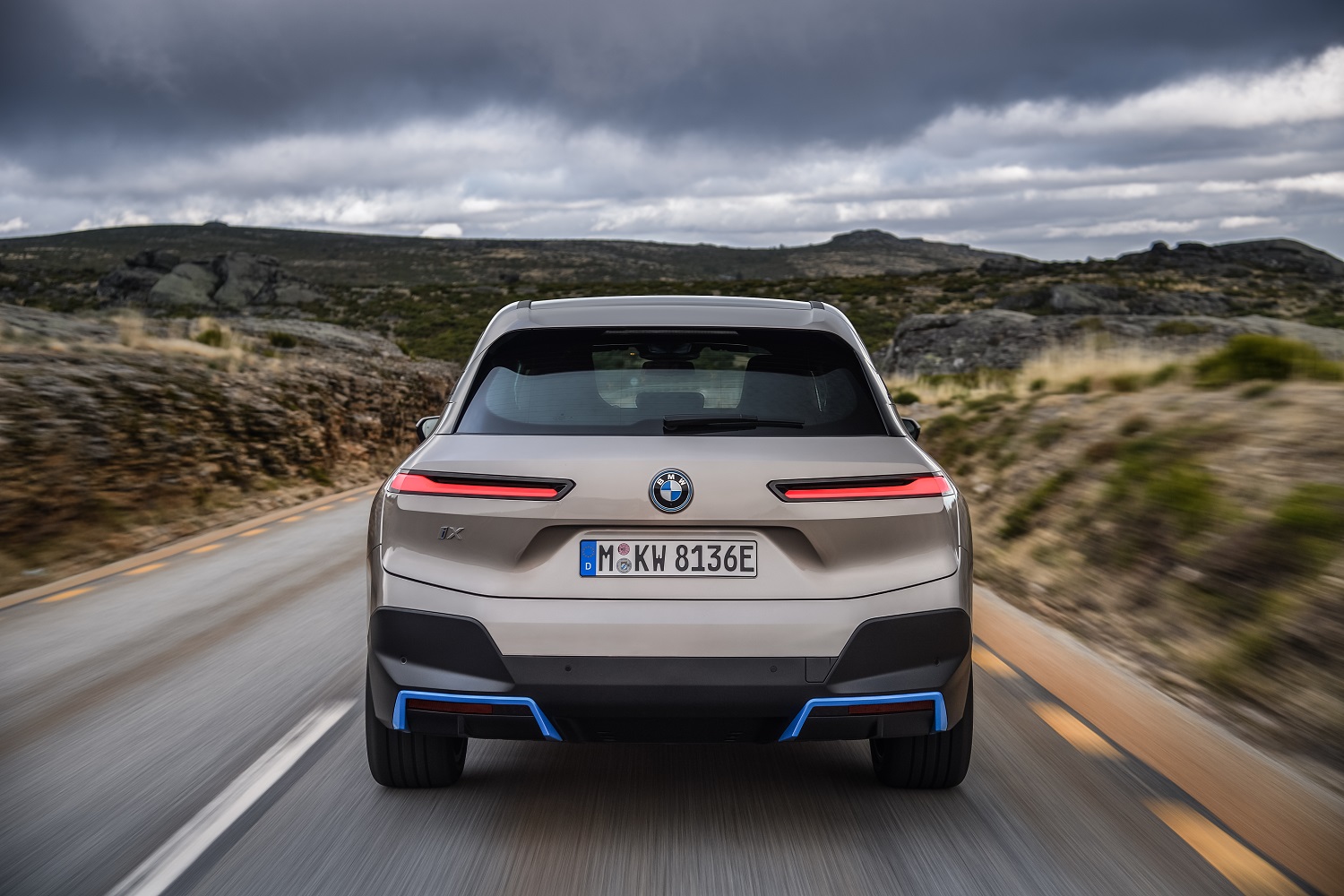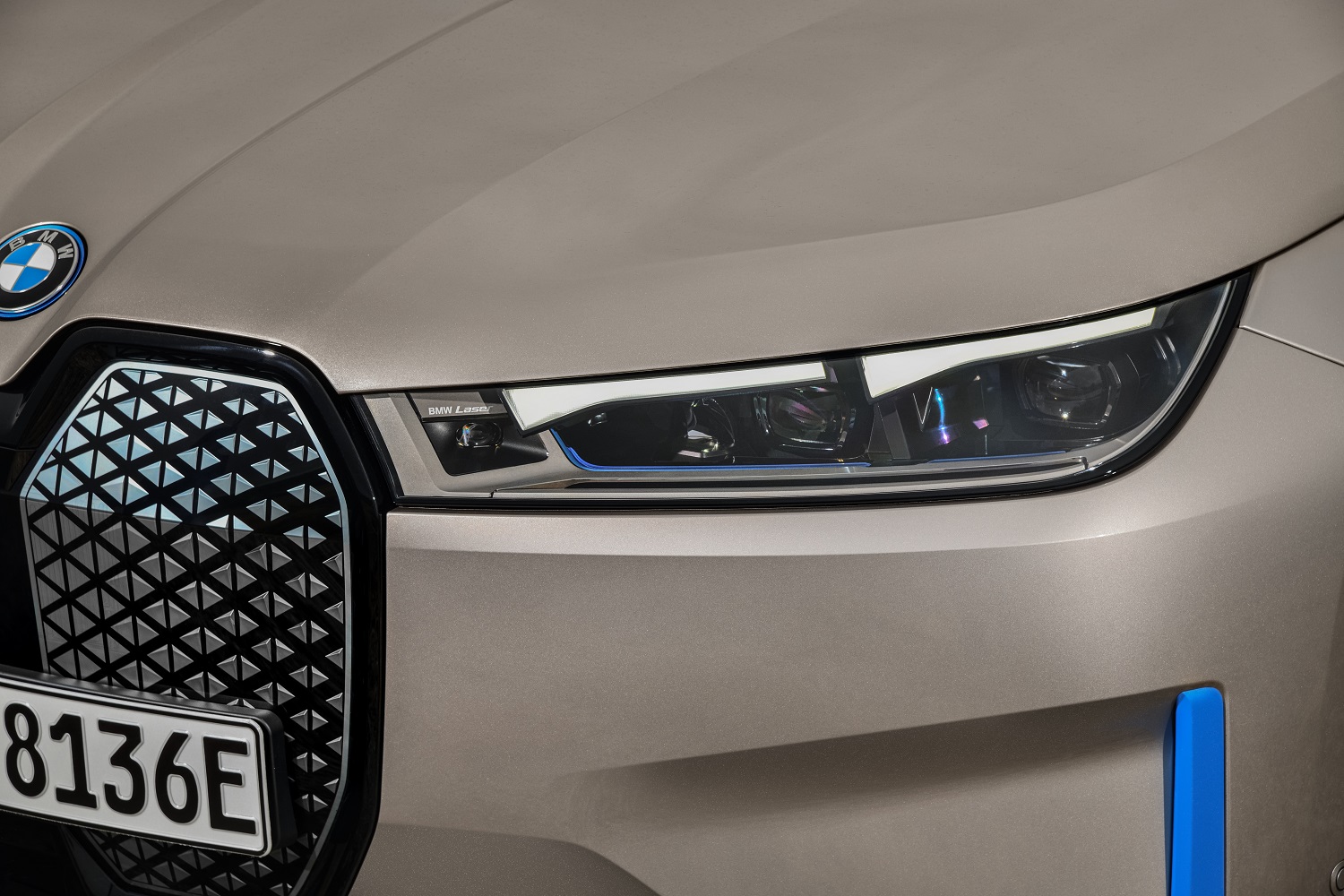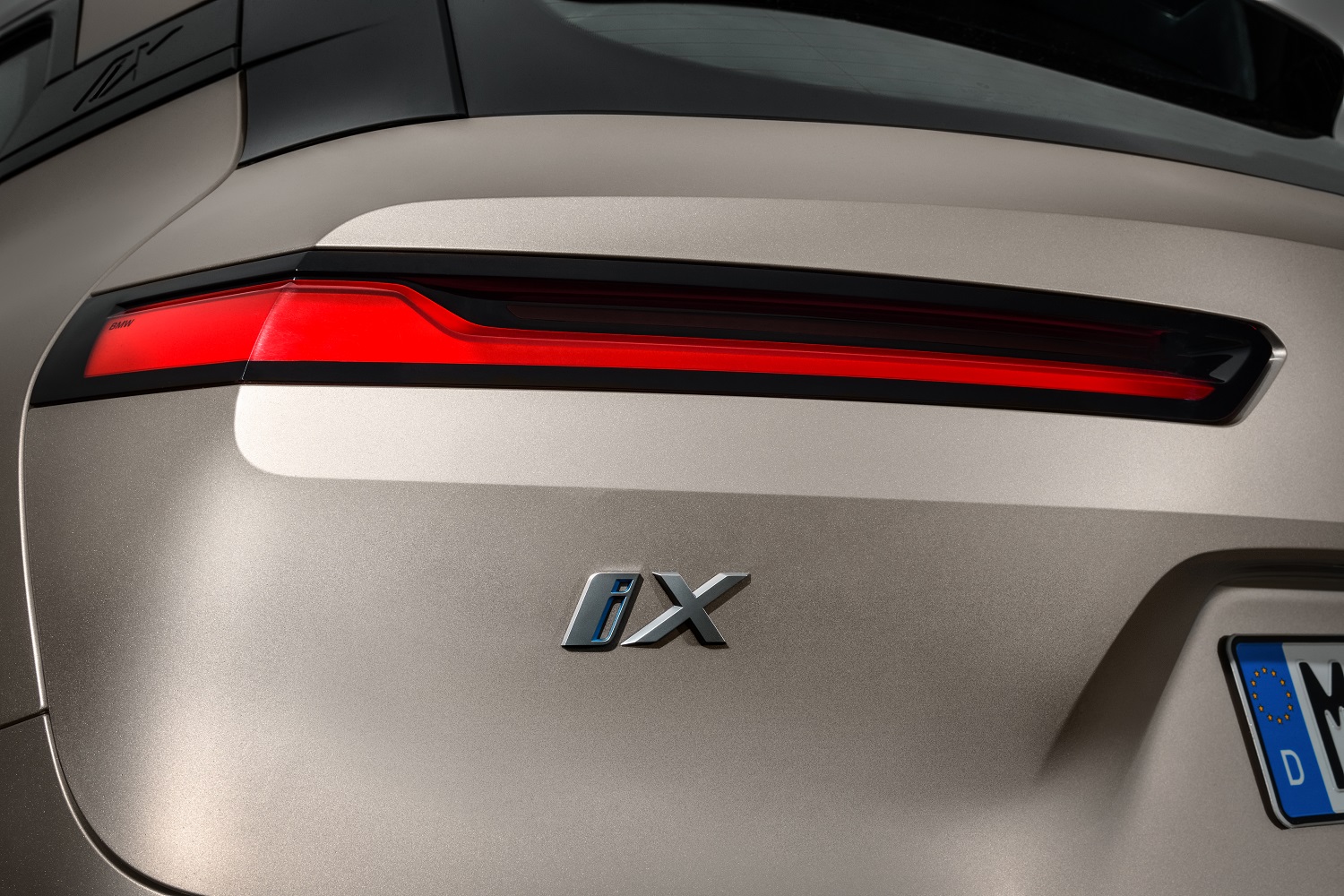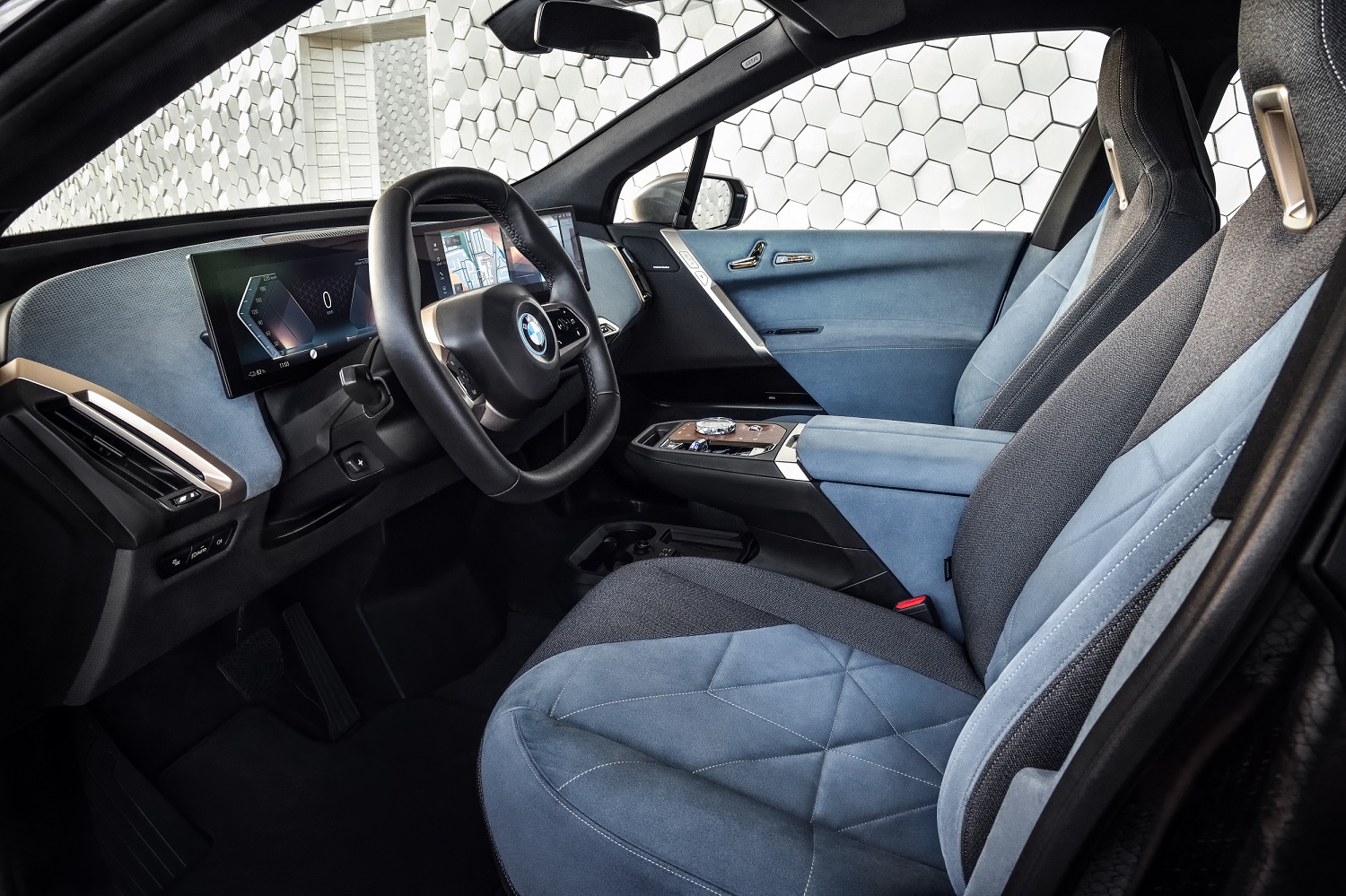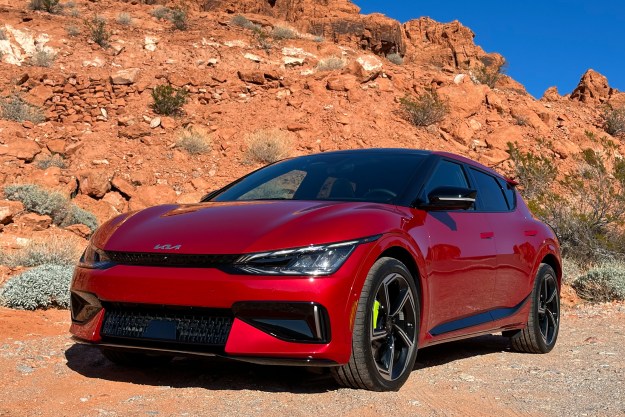Developed as an electric car from the ground up, the iX is unlike any SUV ever released by BMW. Its polarizing design hides a thoroughly modern powertrain and cutting-edge technology features that will permeate other members of the company’s range during the 2020s. It’s not a concept, either: It’s headed to production in 2021.
The iX lives up to its positioning as BMW’s tech flagship by offering 20 times the computing power of the company’s current SUVs, and by inaugurating a built-in 5G connection made possible by a partnership with Samsung. 5G will transform the ultimate driving machine into the ultimate streaming machine. It notably makes zero-delay streaming possible, which opens the door to in-car gaming, virtual reality experiences, and movie streaming at resolutions up to 4K. On a secondary but equally important level, it will also let BMW integrate an array of semiautonomous driving functions that need low latency, guaranteed network coverage, and an allotted minimum data rate to function.
BMW explained it designed the iX — which evolved from the 2018 iNext concept — from the inside out in order to make the cabin as relaxing as possible. It’s a car loaded with technology, yet stylists gave it a minimalist interior that’s clear, simple, and easy on the eyes. The driver faces a hexagonal steering wheel and a freestanding curved display that groups the instrument cluster and the infotainment system. Natural materials (including wood) and a generously sized panoramic sunroof come together to create an open, spacious vibe. We’re far away from the drab, all-black interiors that ruled the industry until recently. It’s a layout that looks like it’s right out of a concept car.
Visually, the iX pelts BMW’s design language in a bolder (and, inevitably, a more controversial) direction. About as big as the current-generation X5, it wears a front end characterized by a sizeable grille, thin horizontal rear lights, and a blacked-out d-pillar that creates the illusion of a floating roof. Does it need that big of a grille? Certainly not, electric cars require less cooling than comparable gasoline-powered models, but it’s one of BMW’s trademarks. Besides, the company explained it repurposed the styling cue as a digital command center that powers the various electronic driving aids. Camera technology, radar functions, and other sensors are integrated into the grille.
Power for the iX comes from the fifth-generation of BMW’s electric drivetrain technology. Its power unit is built without rare earth metals, which addresses one of the common criticisms against electric cars, and it’s tuned to deliver about 500 horsepower. BMW quotes a zero-to-60-mph time of about five seconds, and a 300-mile driving range thanks in part to a lithium-ion battery pack with an energy content of over 100 kilowatt-hours. The 200-kilowatt fast-charging zaps the battery with about 75 miles of range in 10 minutes, and charging it from zero to 100 percent takes 11 hours when using a home charger. Full specifications will be released closer to the model’s on-sale date.
BMW will begin building the iX in Dingolfing, Germany, in late 2021, meaning it will arrive on American shores as a 2022 model. Pricing information hasn’t been announced yet, but we expect it will start above $75,000.
Editors' Recommendations
- Fake engine noises in electric cars need to die
- Genesis Neolun concept is an electric SUV inspired by tradition
- The R3 is Rivian’s surprise electric crossover
- Apple’s car project has apparently conked out
- VinFast is bringing a mini electric SUV to the U.S., and maybe a pickup, too
